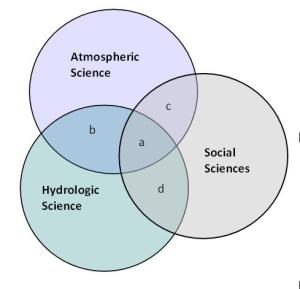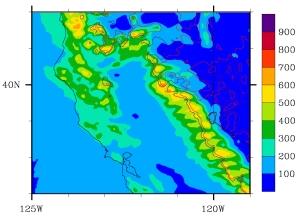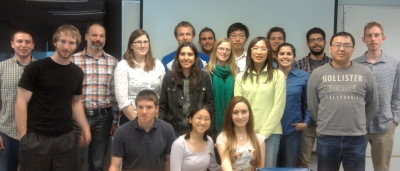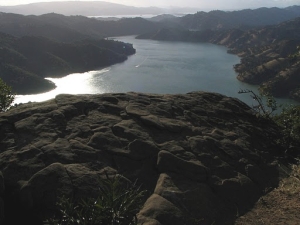Coursework
Courses in the CCWAS IGERT
|
Coursework in the CCWAS IGERT will ...
Specific components of the curriculum include (a) a core course and capstone seminar; informatics courses; and interface courses in (b) hydrologic and atmospheric sciences; (c) social and atmospheric sciences; (d) social and hydrologic sciences. Students who complete the CCWAS IGERT curriculum will receive a certificate in "Climate Change, Water, and Society" noted on their diplomas. |
 |
CCWAS courses also will satisfy graduate program elective requirements and therefore will not increase demands upon students.
Finally, trainees will participate in the UC Davis Responsible Conduct of Research Program and work with the CCWAS Academic Coordinator to develop an individual professional development plan that takes advantage of the rich array of opportunities at UC Davis.
First-year core course: Hydroclimatology--Intersection of Science and Policy (a)
This course, co-taught by faculty from both natural and social sciences, will introduce students to the range of theoretical and empirical foundations in each of the CCWAS disciplines. Faculty will use a case study approach, and will include training in public communication, working with the media, and environmental outreach.
Interface Courses (b, c, d)
|
The CCWAS IGERT will provide students with an array of interface courses that bridge two or more areas within the disciplines of atmospheric, hydrologic, and social science. These courses will broaden the interdisciplinary perspective and toolkit of CCWAS trainees. Typical offerings might include the following.
|
  |
Trainees in the CCWAS IGERT will be expected to take at least two interface courses that span two or more dual-disciplinary categories. For example, a student in Hydrologic Sciences might take Integrated Surface Water Hydrology and Water Policy and Politics, thus spanning categories b, c, and d.
Capstone seminar: Issues in Climate and Water Science in California (a)
|
The capstone seminar will stimulate integration across the entire IGERT by involving students in real-world decision-making processes. Problems addressed by students in the capstone course lack simple answers and will require connections between multiple natural and social science disciplines. Further, students will be exposed to the stakeholder groups and agencies that actually set water policy in California and will gain hands-on experience in organizing scientific workflows, formal cooperative planning, and conflict resolution. Throughout the two-year capstone course, we expect CCWAS students to identify opportunities and funding to address high-priority scientific gaps that they can address as part of a thesis while collaborating with an agency or stakeholder on impacting public policy. Thus, the capstone course will provide a bridge to dissertations as well as producing peer-reviewed articles. Each year, the capstone course will culminate with a Conference on State of the Science and Policy and a student-authored white paper modeled after IPCC reports. |
 Photo: © Dave Feliz. |
